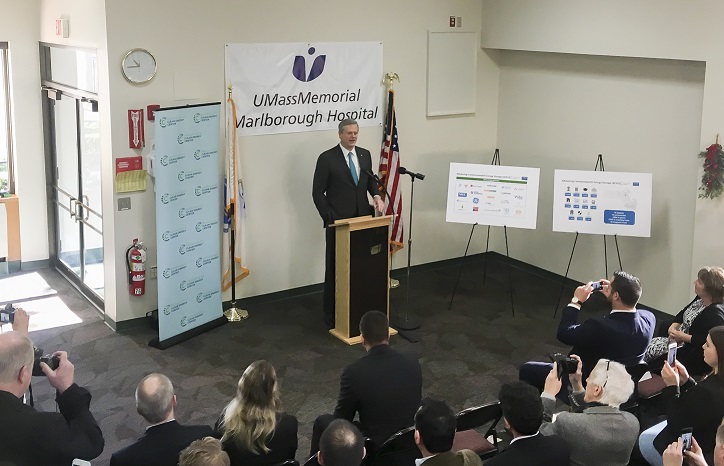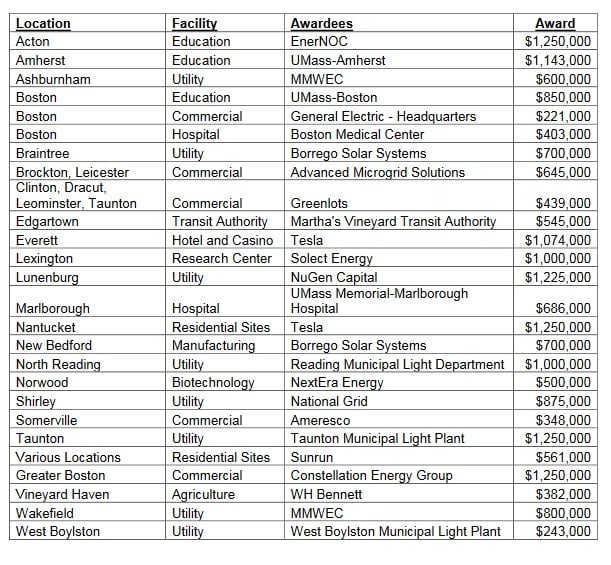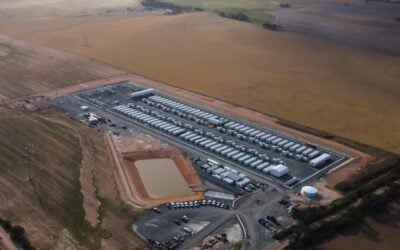
Massachusetts, one of the few US states thus far to put consideration of energy storage into long-term planning decisions for electric utilities, will support 26 projects with US$20 million in grants.
Earlier this year the Department of Energy Resources (DOER) for the state, which is officially known as a Commonwealth, set a 200MWh ‘aspirational target’ for energy storage deployment by electric distribution companies. While the non-binding nature of the target was criticised by some, overall the industry, trade groups and activists appeared to regard the move as positive.
Enjoy 12 months of exclusive analysis
- Regular insight and analysis of the industry’s biggest developments
- In-depth interviews with the industry’s leading figures
- Annual digital subscription to the PV Tech Power journal
- Discounts on Solar Media’s portfolio of events, in-person and virtual
Massachusetts Governor Charlie Baker and second-in-charge Lt Governor Karyn Polito said on Friday that their administration had decided to award the funding to deliver benefits to the Commonwealth’s ratepayers and the grid, while helping develop an energy storage market.
Baker called the funding “an investment in our energy portfolio that will reduce costs for ratepayers and help create a clean and resilient energy future”.
In 2015, Baker-Polito created the Energy Storage Initiative (ESI) Advancing Commonwealth Energy Storage (ACES) programme. ESI was described as a two-phase, US$10 million scheme initially which among other things was intended to help assign values to energy storage technologies, the services they can provide and the system, network or grid issues they can address. It was also intended to help home-grown companies compete.
Funding doubled, partly on strength of submitted projects
Massachusetts Clean Energy Center, which administers the programme, then produced State of Charge, a hefty 270-page report on Massachusett’s potential for energy storage development, in conjunction with DOER as a guide to the initiative. The study examined 10 separate use cases for energy storage in the Commonwealth.
The US$10 million funding pot was doubled in size as the Baker-Polito administration became enthused by the potential benefits of funding projects. The administration said this decision had been swayed in part by the strength of projects submitted for funding.
Seen in the table below, each individual grant is relatively small, with only nine of the 26 receiving US$1 million or more, with none over US$1.250 million. The administration said US$32 million is expected to be raised in matching funds for the projects, while benefiting 25 separate communities. The funding has been paid for through the DOER’s Alternative Compliance Payments scheme, where retail electricity suppliers in the Commonwealth who do not meet standards for renewable energy procurement make payments to discharge some portion of their commitment to state-wide goals. Awarded projects are a mix of front- and back-of-meter projects, including solar-plus-storage and standalone microgrids.

There is currently only around 4MW / 7MWh of advanced energy storage deployed to date in Massachusetts. The latest awarded projects comprise 32MW / 85MWh of storage capacity, of which 16MW / 45MWh falls under electric distribution company jurisdiction, contributing to their share of the 200MWh aspirational target, which is to be deployed by the beginning of January 2020.
“Energy storage is a strategic opportunity for the Commonwealth to transform the way we utilise our energy resources. The projects receiving funding through the ACES programme will provide a roadmap for how Massachusetts can integrate storage into our diversified energy portfolio to lower overall energy costs, increase grid efficiency by decreasing peak demand, and more effectively utilise our strong clean energy sector,” DOER commissioner Judith Judson said.






